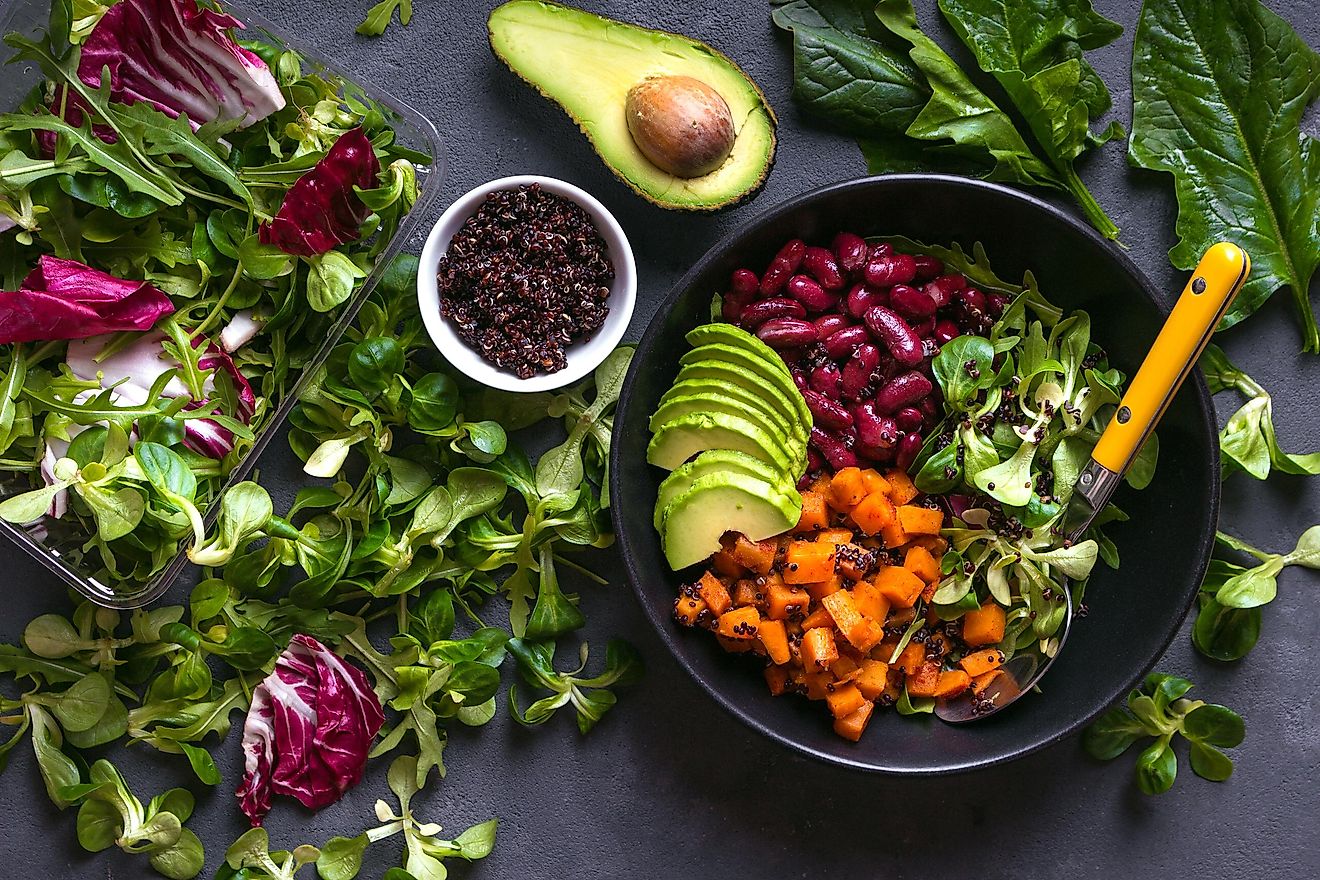What Is A Vegetarian Diet?

- A vegetarian diet eliminates meat, fish and poultry.
- Lacto-ovo-vegetarian diet eliminates meat, fish and poultry but allows eggs and dairy products.
- A vegan diet eliminates all animal-derived products.
What is a Vegetarian Diet?
A vegetarian diet is a diet that excludes poultry, meat, fish and any other form of animal flesh. People often adopt a vegetarian diet for a variety of reasons which could be personal, ethical, religious, or environmental.
Many variations of vegetarianism exist, each with different restrictions. These are lacto-ovo-vegetarian diet, lacto-vegetarian diet, ovo-vegetarian diet, pescetarian diet, vegan diet, and flexitarian diet. The most common vegetarian diet is the lacto-ovo vegetarianism which eliminates all forms of poultry, meat, and fish. Other types of vegetarianism may avoid eggs and dairy. The most restrictive of vegetarianism is the vegan diet. A vegan diet restricts all forms of all animal products.
Depending on the type of vegetarianism, vegetarians may avoid foods such as meat, poultry, fish, shellfish, meat-based ingredients, eggs, dairy products, or honey. Instead, vegetarians eat fruits, vegetables, grains, legumes, nuts, seeds, healthy fats, and proteins such as tofu, seitan, and spirulina.
Health Benefits of a Vegetarian Diet
Vegetarian diets have been associated with several health benefits. Thanks to the better diet quality and higher composition of nutrients such as magnesium, vitamins C, vitamin E, and fiber found in them. Studies suggest that vegetarian diets lessen the risk of chronic diseases like cancers of the colon, stomach, rectum, and breasts. However, more research is needed to demonstrate this relationship as current research is only observational.
A vegetarian diet may promote weight loss. Several studies have shown that vegetarian diets are effective at reducing weight. This fact explains why vegetarians tend to have a lower BMI than non-vegetarians. A vegetarian diet may help maintain healthy blood sugar levels. For this reason, a vegetarian diet can be employed in people with type 2 diabetes mellitus to keep their sugar in check. In the long-term, a vegetarian diet can prevent diabetes. A study in 2,918 demonstrated that there is a 53% reduction in the risk of diabetes for people who switched from a non-vegetarian diet to a vegetarian diet.
Vegetarian diets lower the levels of low-density-lipoproteins, triglycerides and total cholesterol in the body, which are some of the risk factors of heart disease. A vegetarian diet, therefore, promotes good heart health. Other studies have shown that a vegetarian diet lowers blood pressure making it a protective factor in heart disease.
Potential Downsides
Shunning from animal products needs dietary enhancements to avoid related nutritional deficiencies. For instance, Vitamin B12 deficiency can cause pernicious anemia. Other nutrients that vegetarians can supplement include iron, calcium, protein, and zinc. Lack of these micronutrients will lead to symptoms like weakness, anemia, thyroid issues, bone loss, and fatigue.
Bottom Line
Most vegetarians shun away from meat, fish, and poultry while some also confine in dairy, eggs and other animal products. A well planned vegetarian diet containing nutritious foods like grains, plant-based proteins, healthy fats, and produce may give aids but may also increase the risk of nutritional deficiencies if planning is poor. Paying close attention to a few essential nutrients and supplementing your diet with several healthy foods will make one enjoy the merits of vegetarianism while reducing related side effects.







